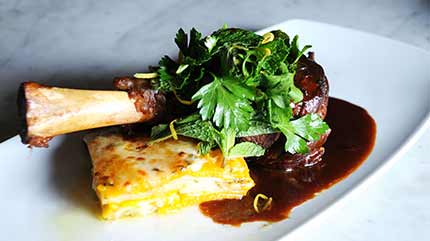Our philosophy
After five years in downtown Delray Beach, Cut432 continues to put a modern twist on the great American steakhouse. You’ll find contemporary style, a high-energy vibe, and yes – perfect steaks. We serve USDA Prime dry-aged beef sourced from the world’s top ranchers and artisanal producers. And we’re focused on delivering you a consistent, high-quality dining experience, every time.
Commitment to Great food
Cut432 is known for its steaks, but we cater to all tastes and appetites. Our dinner menu includes Raw Bar selections, seafood specialties, and American Classics: Chicken, pork chops, ribs, and rack of lamb. Are you vegetarian? Our chef is happy to prepare a meal especially for you. Just want a small bite? Try one of our legendary appetizers.


Follow Us!